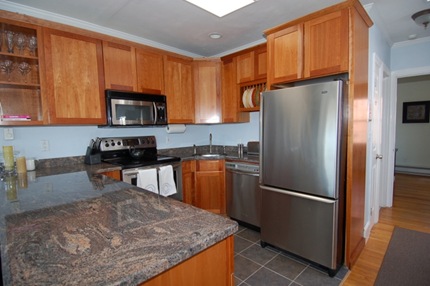If you have decided to add hardwoods to your property, you’ve made a wise decision – just keep in mind you’ll have to also plan on maintaining them.Hardwood flooring is created from mature trees, then treated & finished. Maintaining them can be difficult, however, because they can scratch easily and also absorb moisture.
Leaving a puddle of liquid on your hardwoods for any longer than necessary is not a good idea. The cracks between the hardwood can absorb the moisture and swell. Any amount of liquid that happens to be spilled, even in a small area, can still become damaging should it stay there for any lengthy period of time.
If you spill something on your hardwood floors, clean up the fluid immediately. Use a damp mop only when you clean your hardwoods. There are floor cleaners that are specifically formulated for hardwoods that you can use. Whichever route you go, use the minimum necessary to keep your mop damp.
Dents and scratches can occur to hardwoods over time. For some types of flooring, especially softer woods, high heels can leave indentations – you might contemplate taking them off and leaving them at your door to reduce wear. Over time the legs of your furniture can also damage the floor. A smart idea is placing area rugs underneath the furniture in order to protect the floor, or placing felt underneath the furniture legs. You may also want to add area rugs in any areas that are highly traveled in your home.
Some homeowners can appreciate the character that scratches and dents give to their wood floor. If you’re not one of those individuals and you have lots of dents and scratches, then one good option is to get them refinished. If you have your wood floors refinished every decade and stay on top of protecting them, they can stay in great condition throughout your entire lifetime.
About the Author – Josh manages an Austin real estate website, where users can learn about the Austin market, look at current market statistics, and search all active listings, including Rosedale homes for sale.







